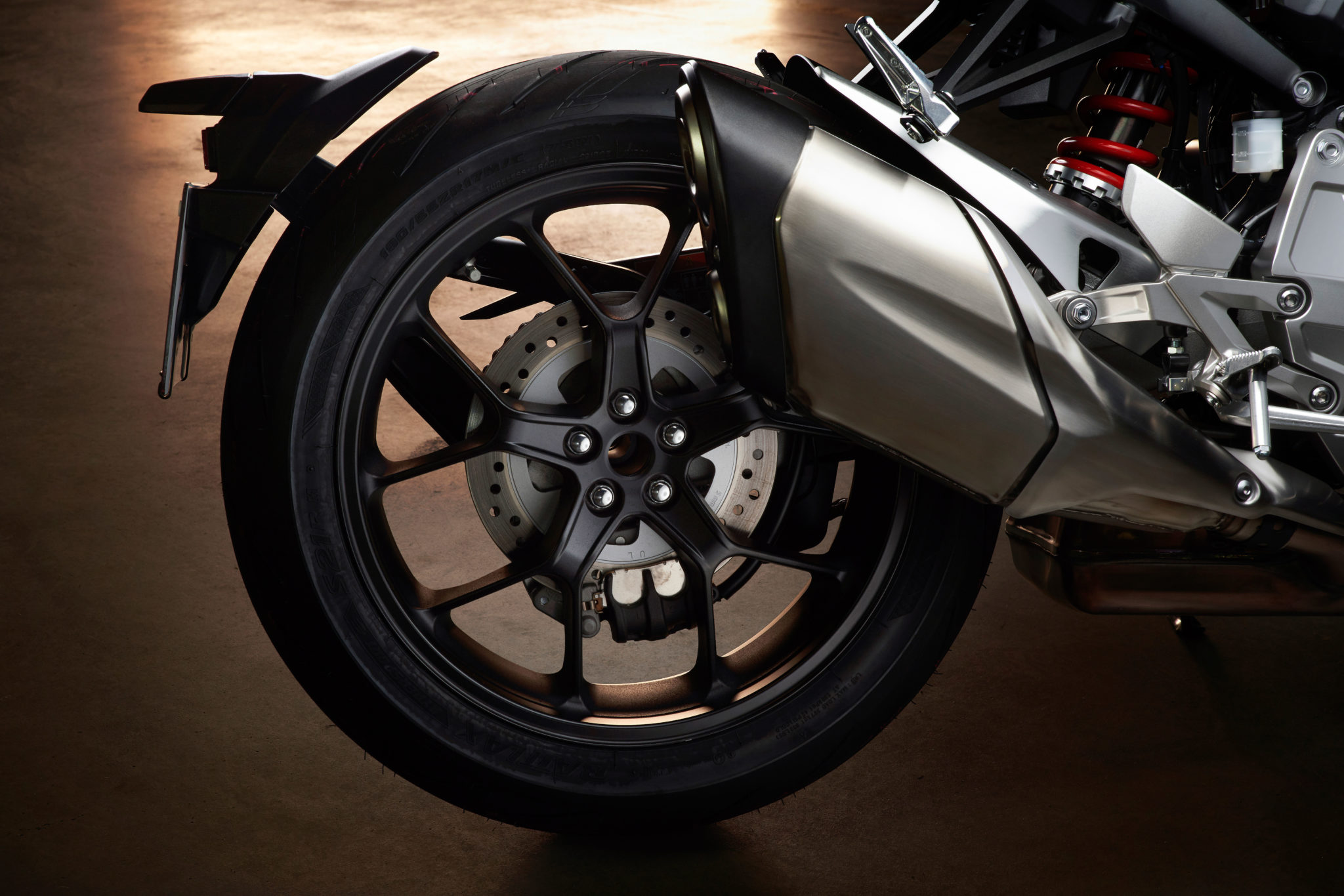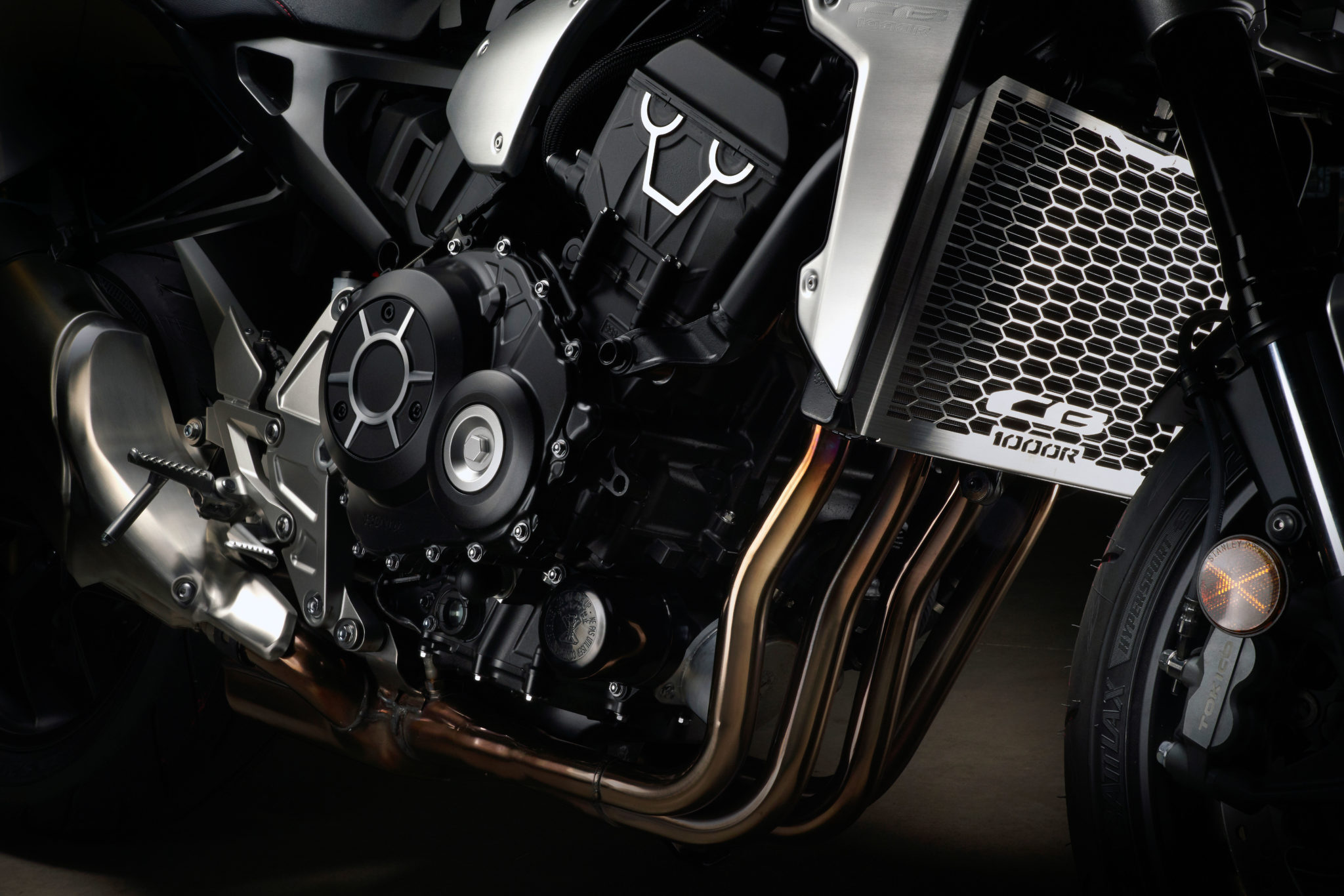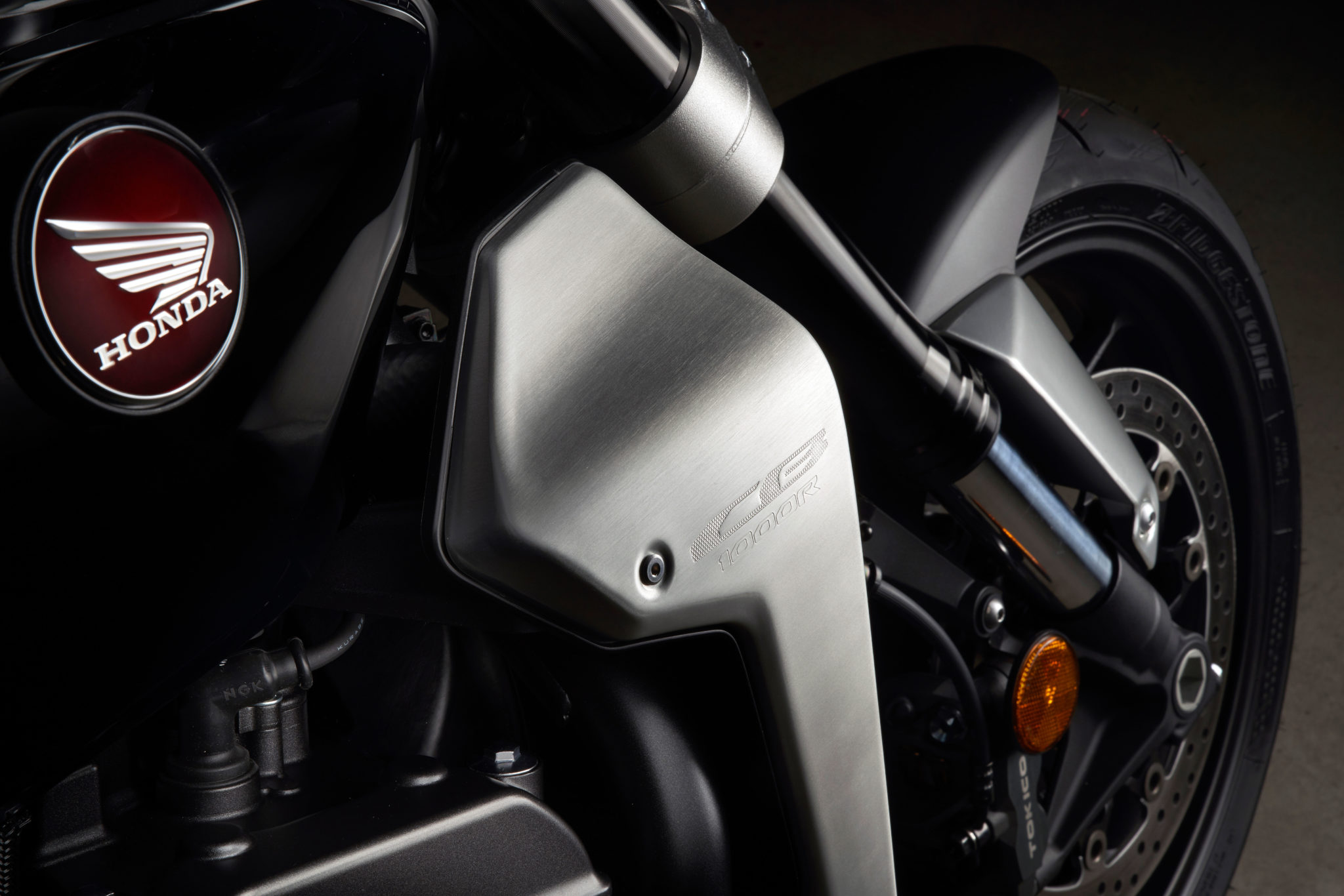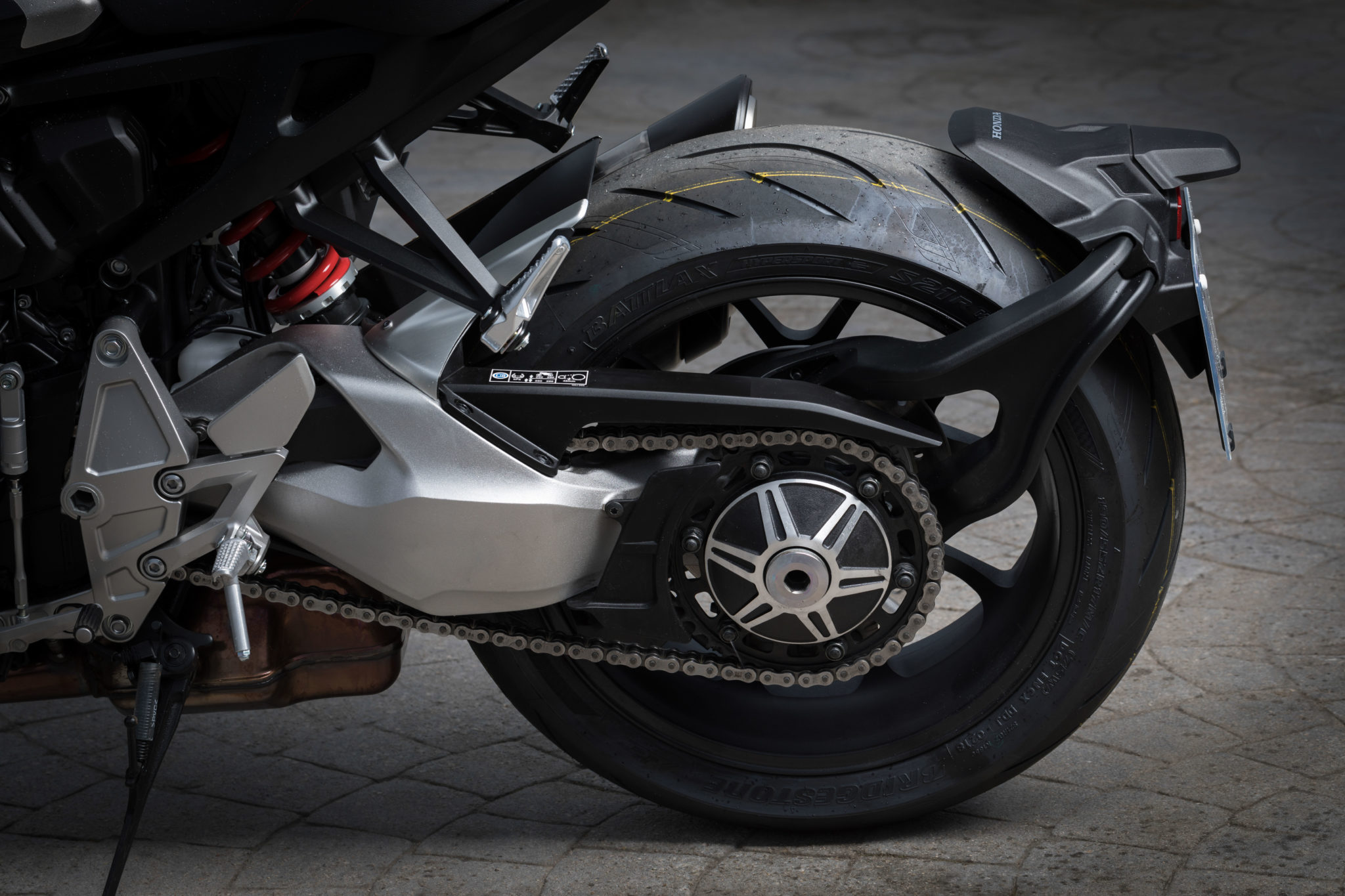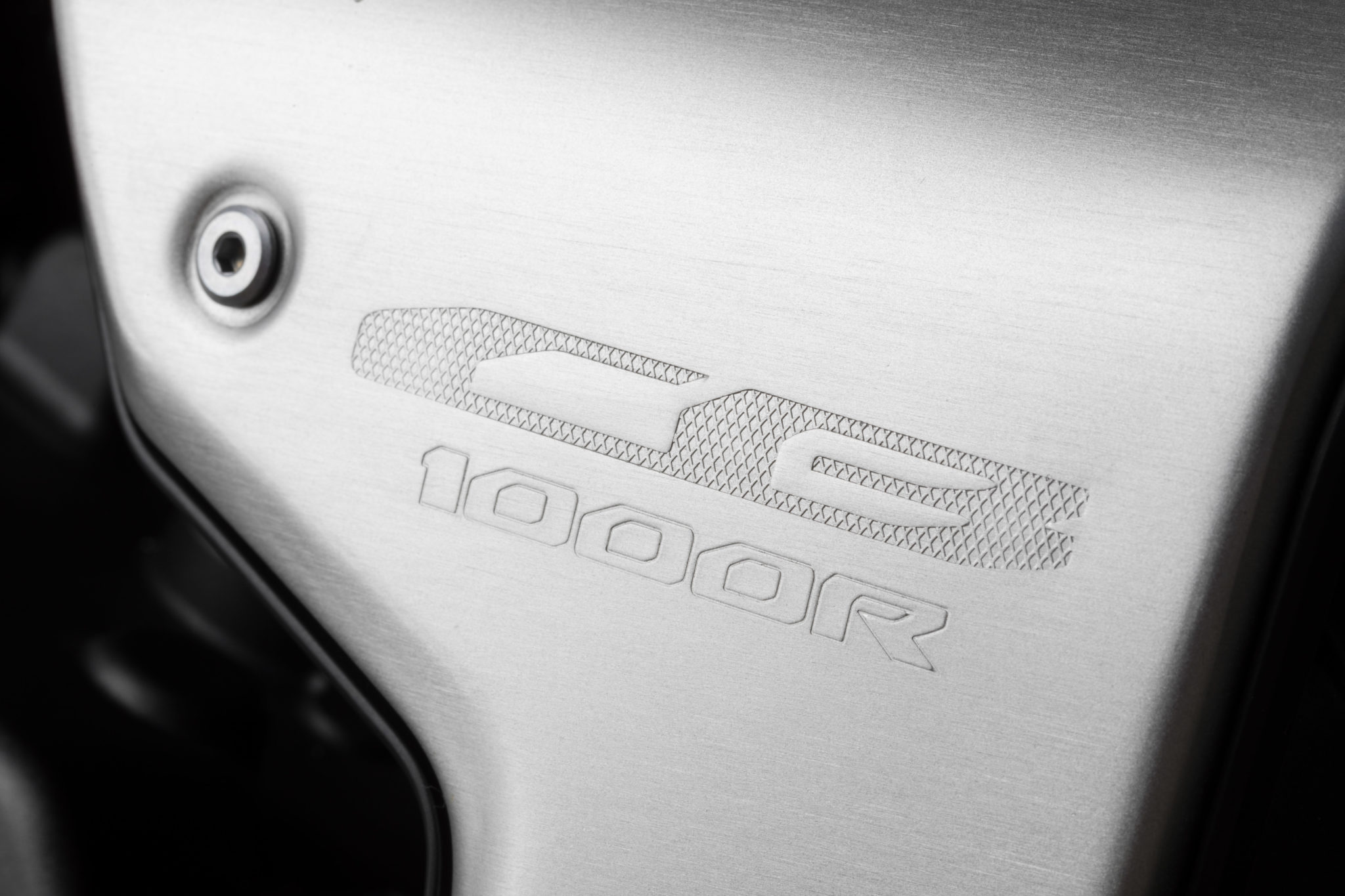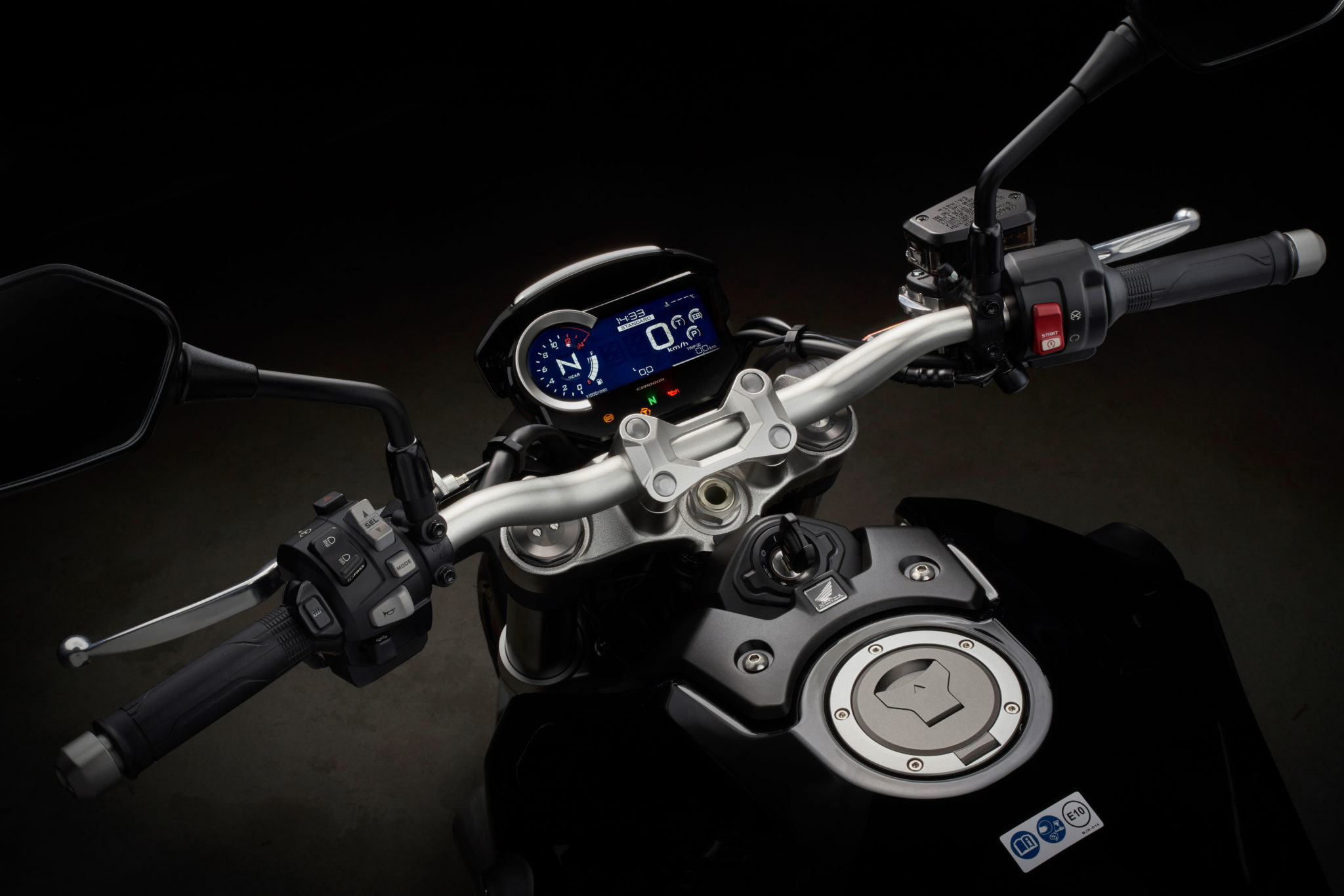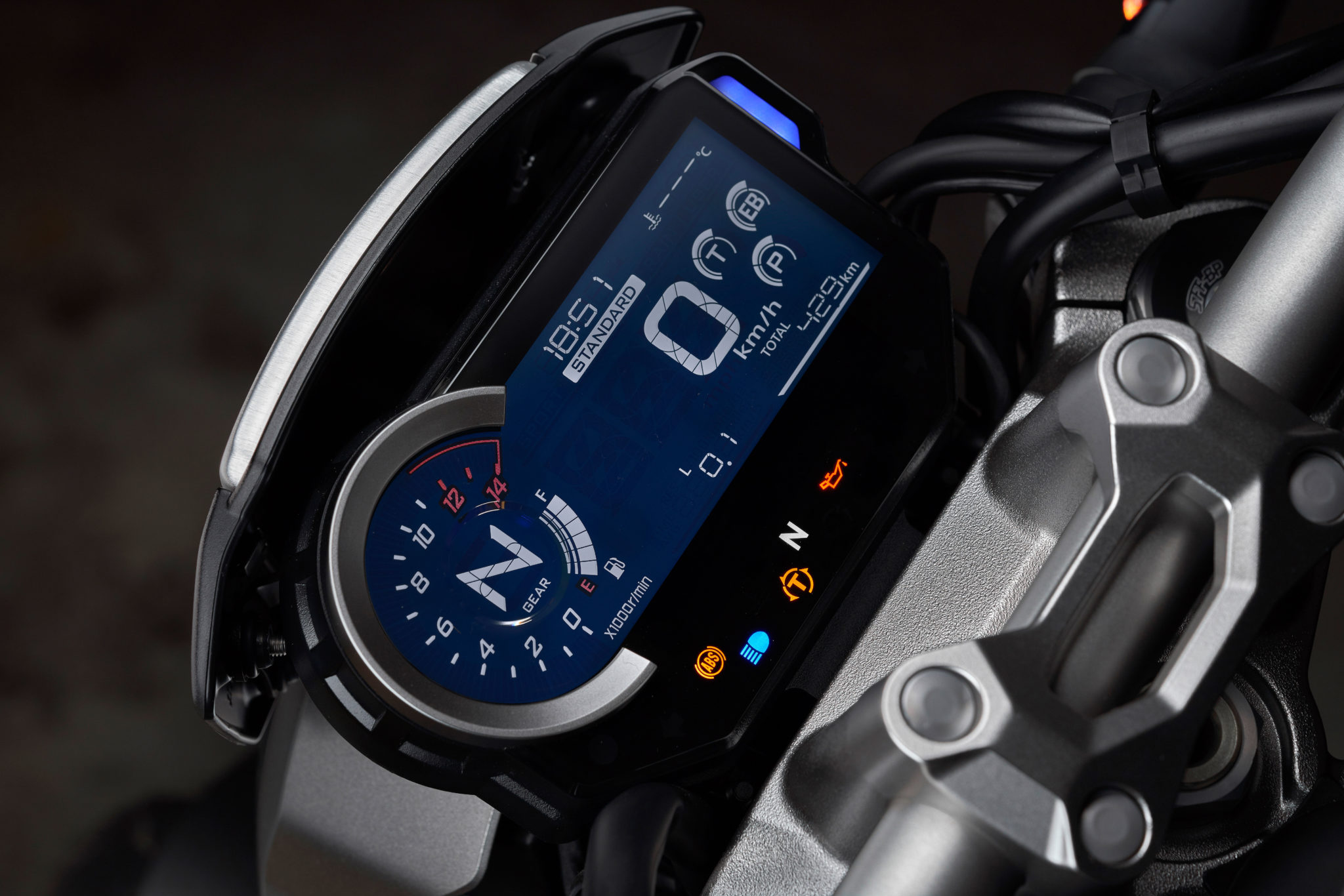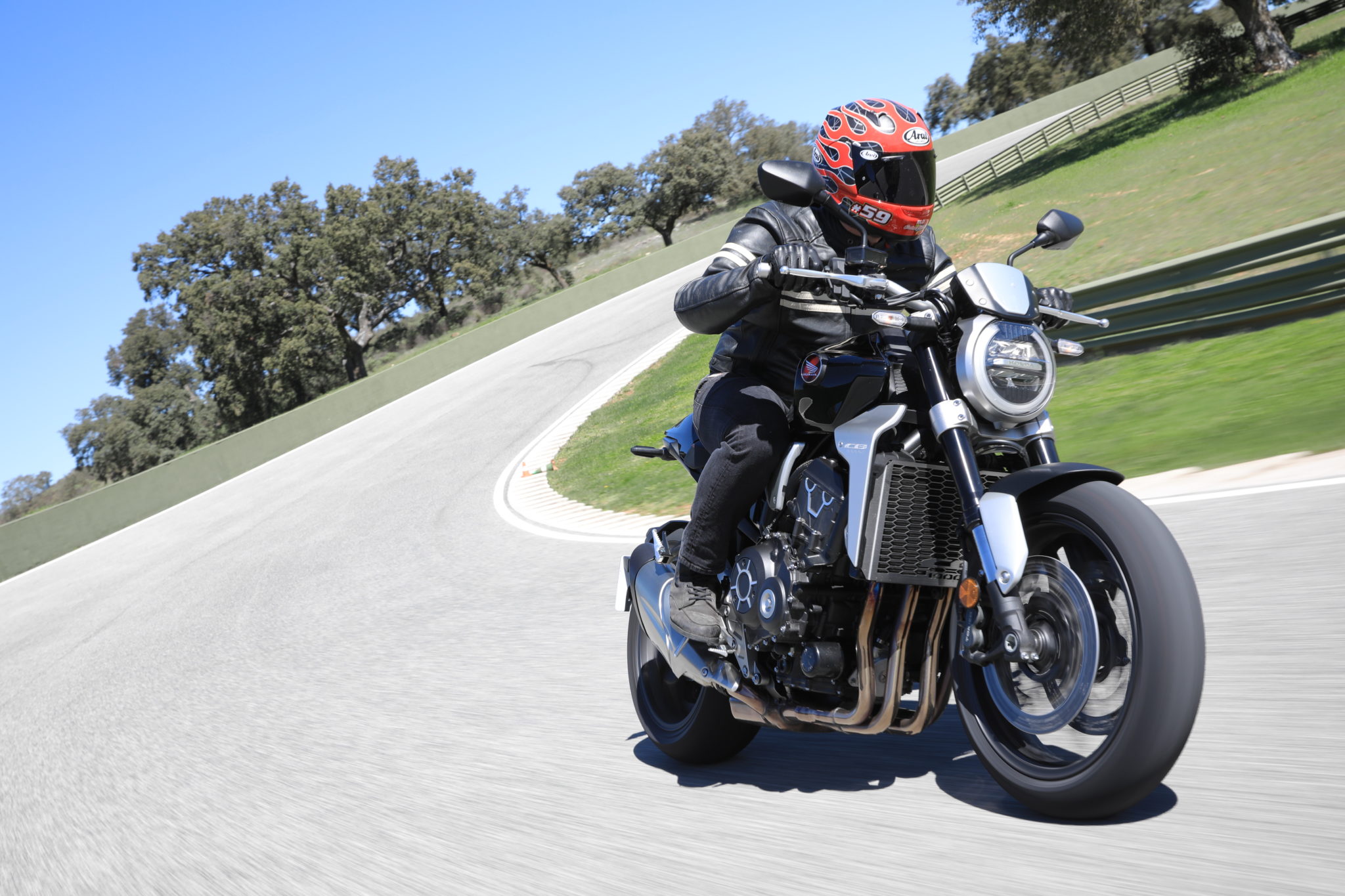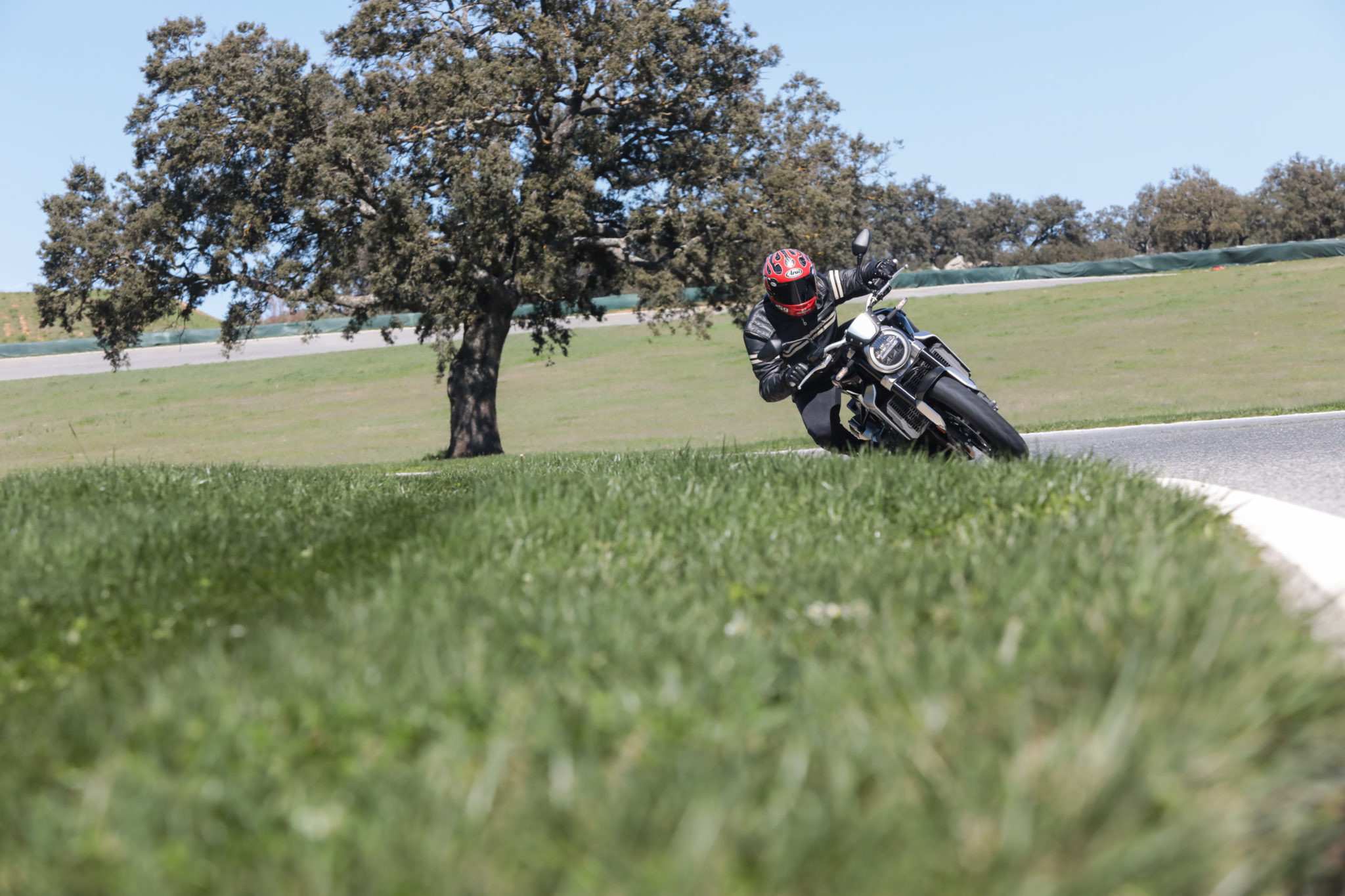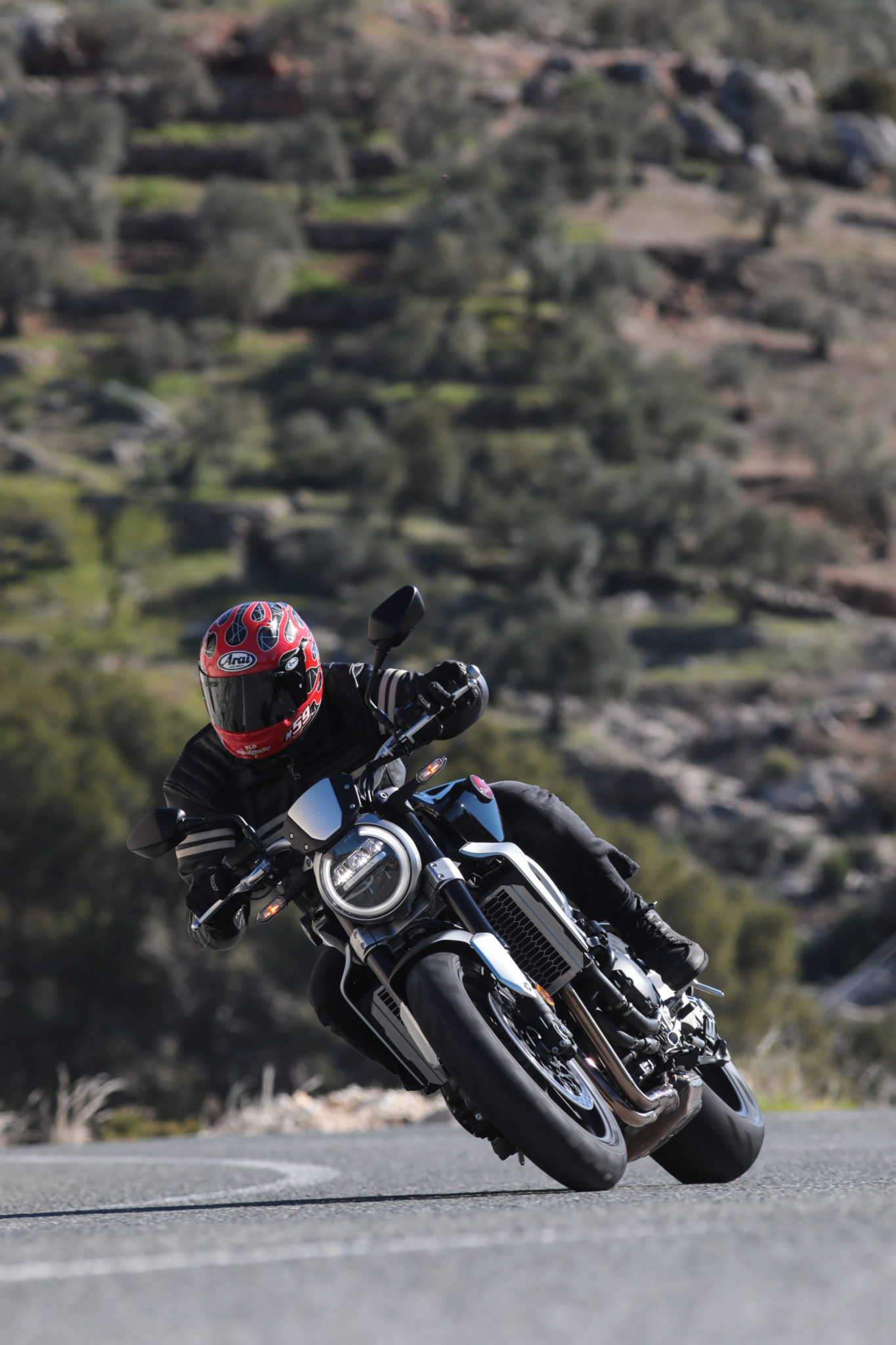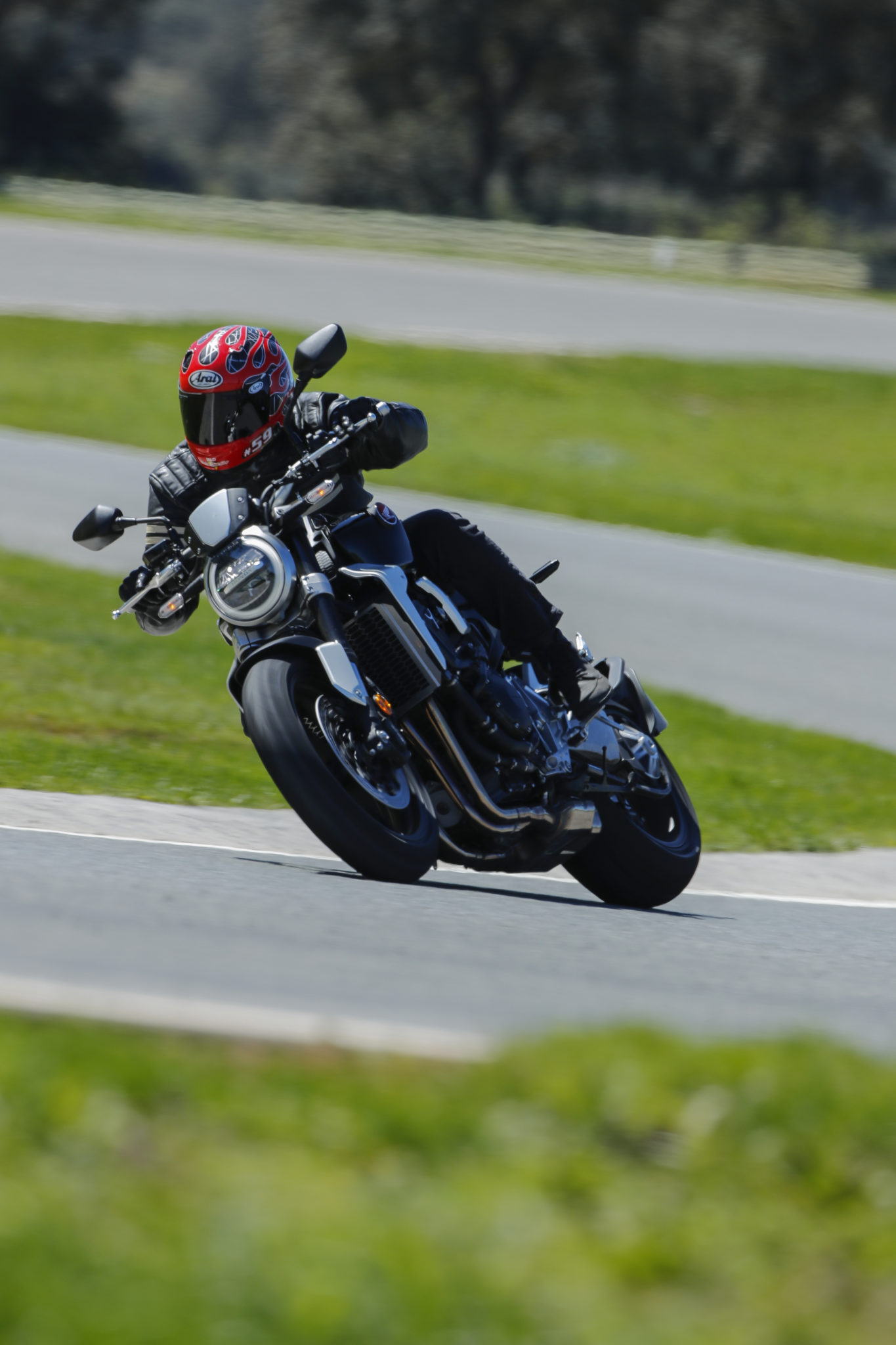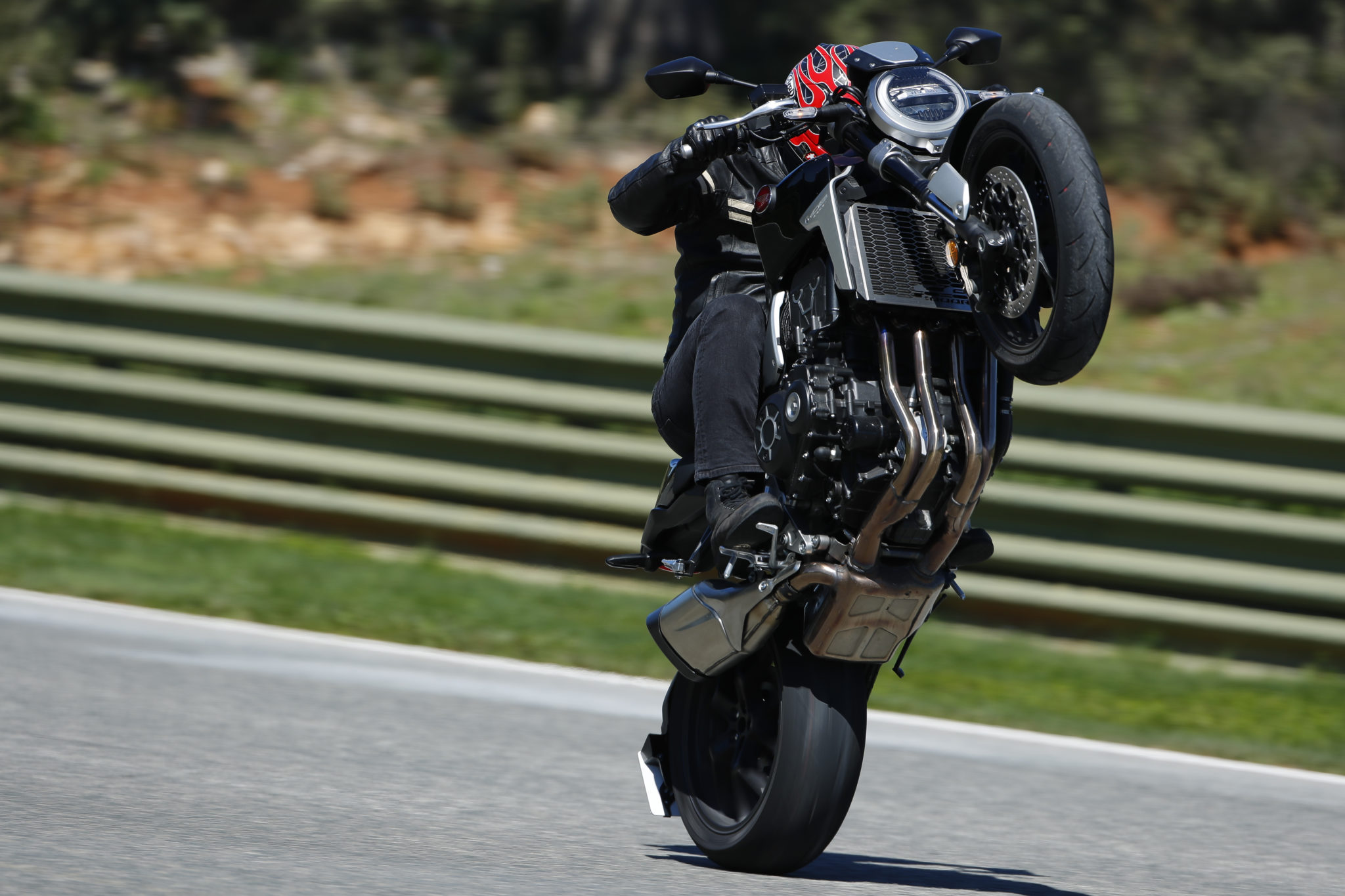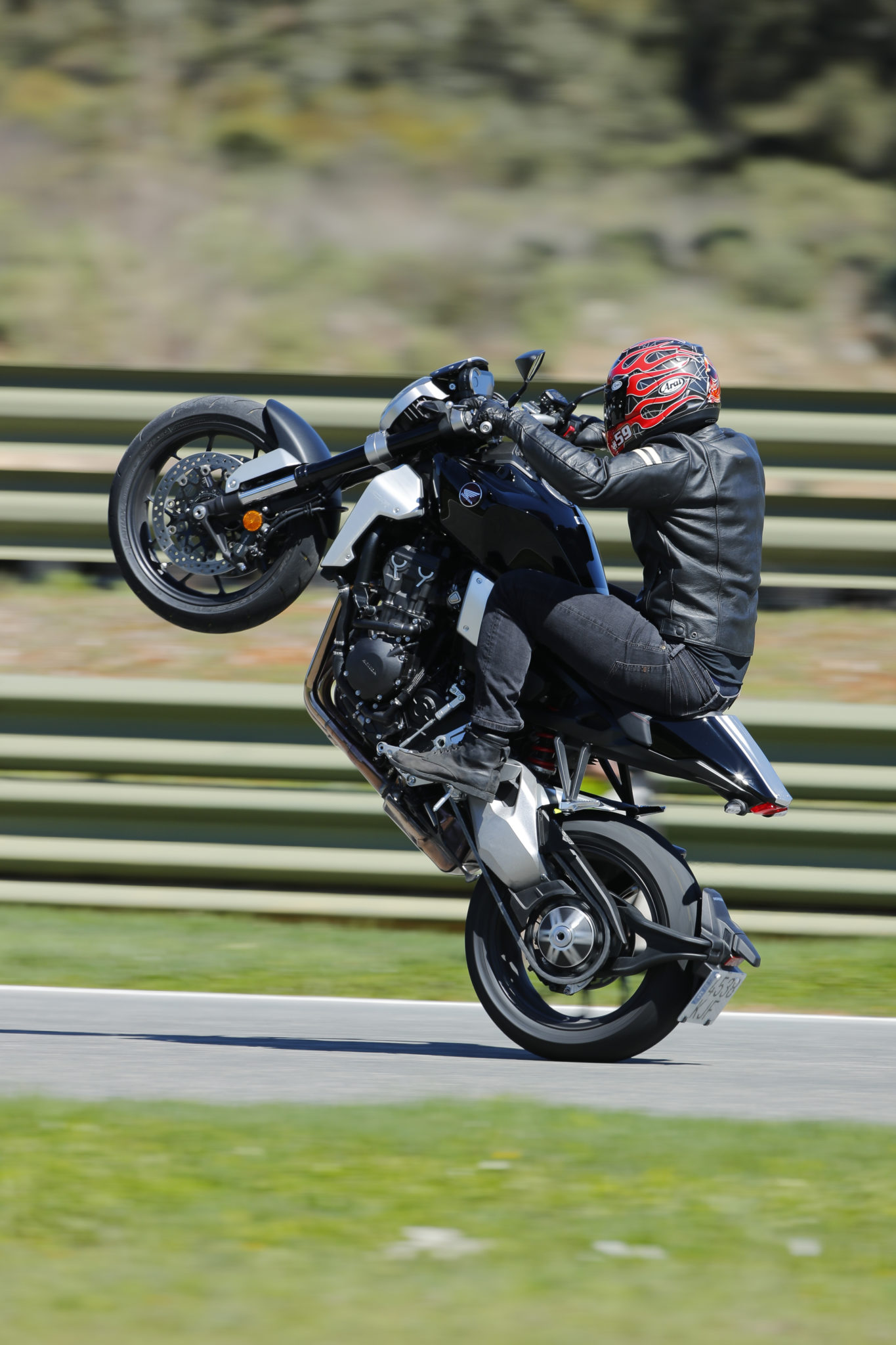Ten years is a long time for a motorcycle to remain in a manufacturer’s range, practically unchanged. And yet we’ve been waiting a whole decade for the new Honda CB1000R to land. Well it finally has, and we went to Spain to check it out.
The all-new CB1000R is a completely different animal to the outgoing model. Honda admitted that styling was its number one priority and that’s clearly evident in the aesthetic design of the new bike, the end result of the collaboration between Italian stylists and Japanese engineers as part of the ‘Neo Café’ project.
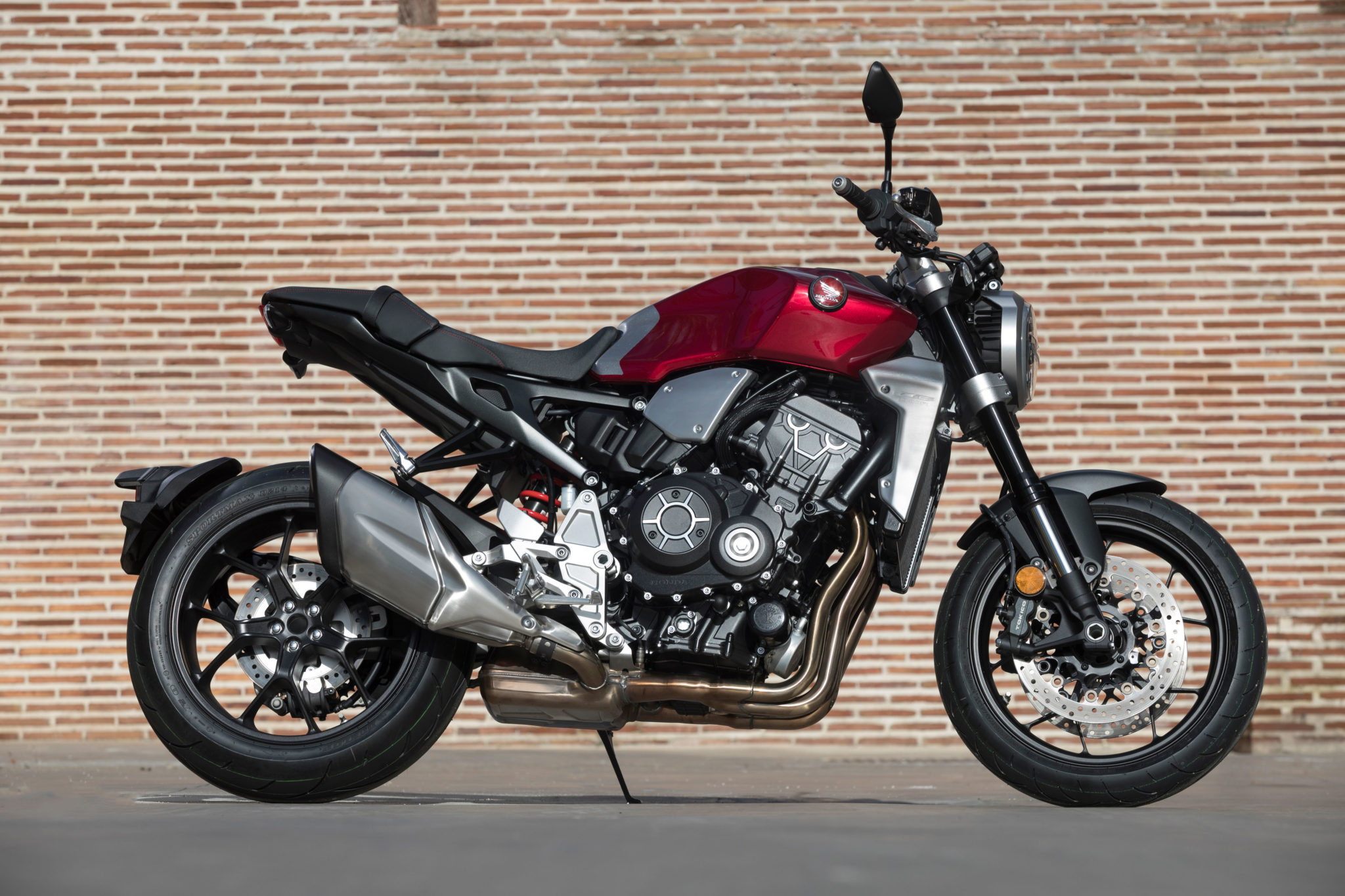
But the changes are far more than skin deep. While the new bike still uses the venerable 2006 Fireblade motor, it’s been breathed on. Heavily. The throttle bodies are up from 36 to 44mm; the camshaft lift has been increased and Honda’s throttle-by-wire (TBW) system has been used to give the bike a huge hit of power in the midrange (6,000-8,000rpm) without making it unrideable at the bottom end. The fuelling is excellent, pulling cleanly from as low as 2,000rpm in practically any gear, all the way to the 11,500rpm redline. The worries about the TBW creating the same problems the 2017 Fireblade was criticized for were quickly allayed after a day’s riding — no nasty surprises and a totally analog feel to the new-fangled digital throttle.
But above all the engine now has character. The older bike was slated for being a little muted and lacking in soul. The revised motor is up 20bhp and clever engineering solutions mean that as well as that surge of power in the midrange, the airbox not only gulps in more air, it growls while it’s doing it. The exhaust sounds remarkably fruity too.
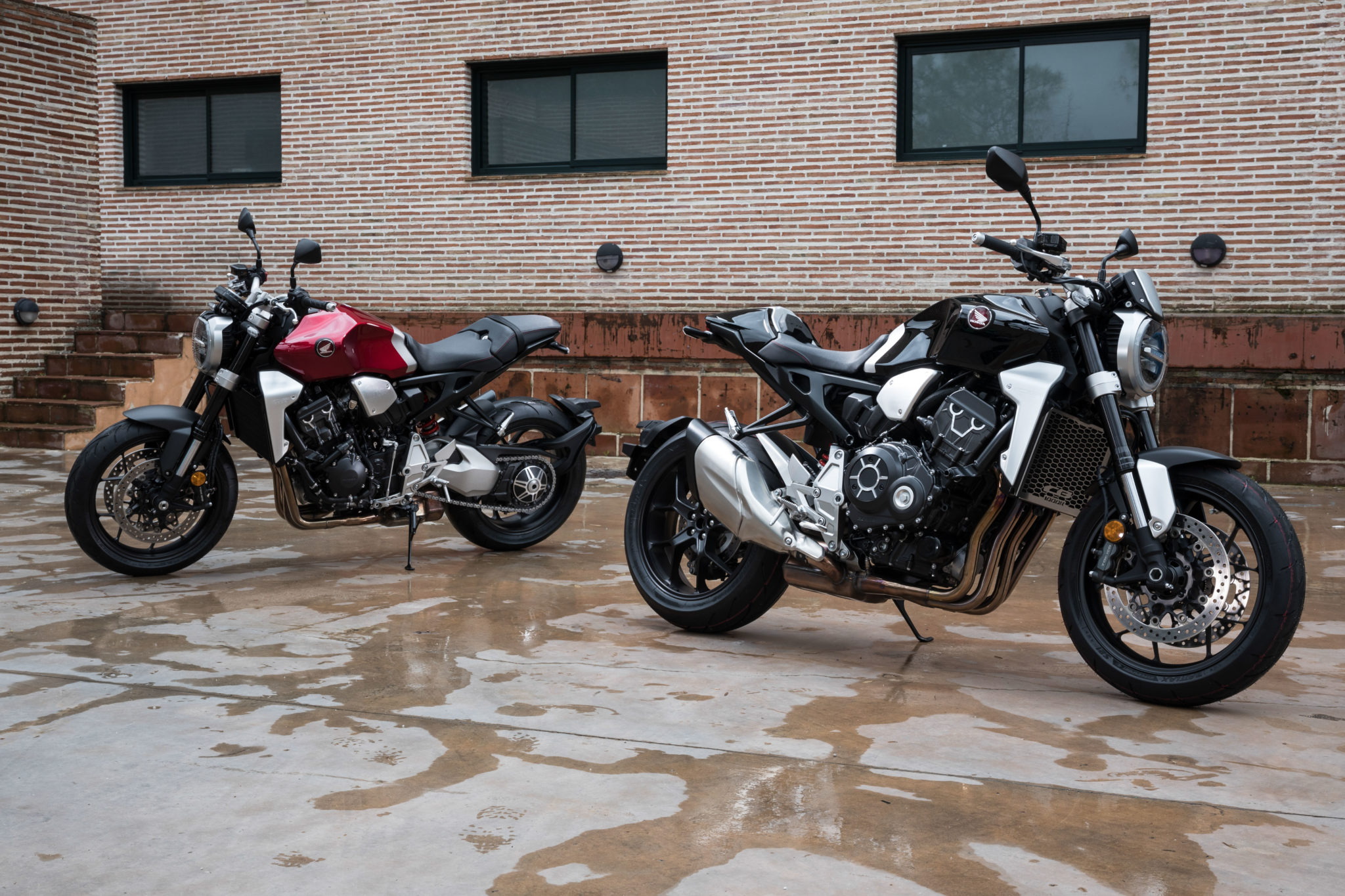
Rider aids are par for the course these days, and Honda’s addition of four modes — Sport, Standard, Rain and User are all easy to select at the flick of a thumb. Each setting allows more or less Torque Control (T — think traction control), Engine Braking (EB) and Power (P). The User mode is adjustable for each parameter, so if you’re a fan of wheelies and burnouts, then you’ll enjoy tweaking this to suit. We found Sport mode to be ideal for when we wanted to crack on a bit and Standard kept things smooth around town.
While the bike looks shorter overall, it’s actually got a slightly longer wheelbase due to the decision to fit a 190-section rear tyre. The bodywork gives the bike its squat look due in part to the compact headlight that sits closer to the rider having moved the ignition key and barrel from the top yoke to just in front of the fuel tank, and a rear end that needs to be no longer than the pillion seat thanks to the fender and numberplate holder being moved to the swinging arm. We think tail tidy sales will take a sharp upward turn when this bike hits the showrooms in May.
The chassis is a big upgrade too. Showa Big Piston forks feel solid but with enough suppleness in the first part of the stroke to deal with small bumps and ripples. Brake hard and they no longer dive like a premiership footballer in the penalty area. Similarly, the rear shock is firm yet progressive. There’s not much adjustment at the back end, but out of the box it felt right so we’ve no complaints there.
The CB1000R is also a lot lighter now. The mono backbone steel frame knocks off 2.5kgs while the exhaust system saves a massive 4.5kg. The total saving is 12kg over the old model. Combined with that 20bhp power upgrade, it’s fair to say this new version is a totally different animal.
On the cold Andalusian roads up to the Ascari race resort, (riding behind none other than BSB and TT legend, Steve Plater) the fast steering quickly becomes apparent. Steer with your eyes, as the old saying goes, and it’ll get you there. Despite this speed of turn (sic), stability is apparently uncompromised — only the occasional steady wag of the bike’s head let us know when it wasn’t happy with our aggressive inputs.
Handling is very good, with the kind of neutral behaviour we’ve come to expect from Honda. But it is compromised by the OE Bridgestone S21 tyres. While we didn’t have any huge moments, we couldn’t really feel what the front tyre was doing which combined with cold tarmac and riding in jeans, put paid to any spirited peg-scraping — incidentally, the ground clearance is also much improved. The ABS works well without being intrusive, and with no annoying pulsing through the lever.
Overall, Honda has created a stunning machine. Sure, it’s 20bhp down on the BMW S1000R and 15 down on the Yamaha MT-10. But then it’s streets ahead of most of its similarly-styled rivals, such as the BMW R nine T, so to say where it sits in the increasingly confusing naked bike market is probably a matter of opinion more than it is a fact.
If you’re in the market for big, fast, good looking naked motorcycle then, tyres aside, we doubt you’ll be disappointed with the CB1000R. It’s been ten years in the making, but boy was it worth the wait.
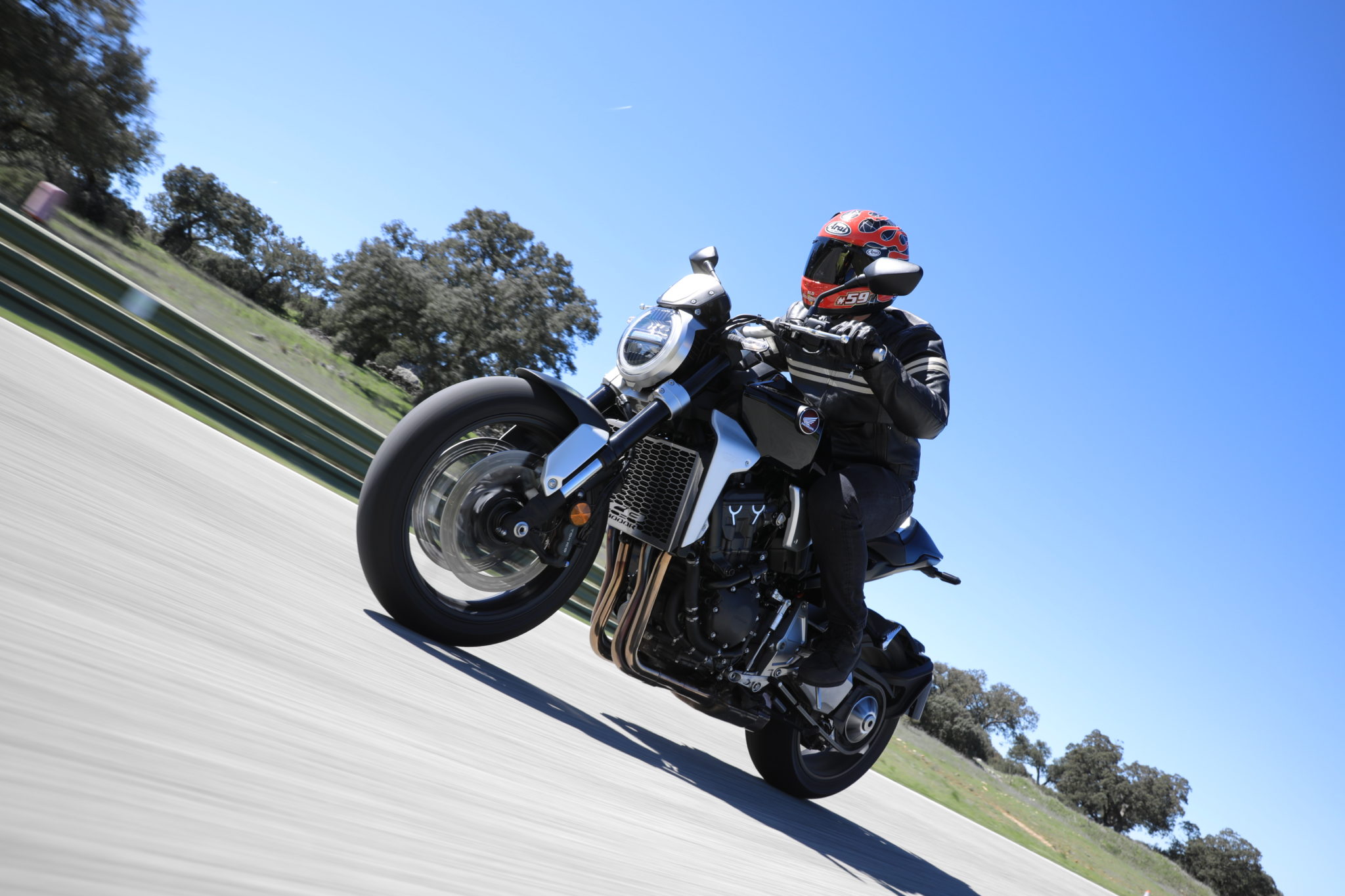
We tested the more expensive ‘+’ variant that comes with heated grips, brushed aluminium front mudguard panels and rear hugger panels, brushed aluminium inserts on the flyscreen and single seat cowl, a radiator grille with a CB1000R logo and a quickshifter. It’s a lot for a few bits, but each part works with the next, making for slick looks and slicker gearshifts. And warmer hands, of course!
Pricing
CB1000R — £11,229
CB1000R+ — £12,229
Colours
Matt Bullet Silver Metallic
Graphite Black
Candy Chromosphere Red.
Honda CB1000R 2018 Technical Specifications
| ENGINE | |
| Type | Liquid-cooled DOHC In-line 4 cylinder |
| Valves per cylinder | 4 |
| Engine Displacement (cm³) | 998cc |
| Bore and Stroke (mm) | 75mm x 56.5mm |
| Compression Ratio | 11.6:1 |
| Max. Power Output | 143.5 bhp @ 10,500rpm |
| Max. Torque | 104Nm @ 8,250rpm |
| FUEL SYSTEM | |
| Carburation | PGM-FI |
| Fuel Tank Capacity | 16.2 litres |
| Fuel Consumption | 48.6 mpg |
| ELECTRICAL SYSTEM | |
| Starter | Electric |
| Battery Capacity | 12V/8.6AH |
| DRIVETRAIN | |
| Clutch Type | Wet, multiplate clutch |
| Transmission Type | 6-speed |
| Final Drive | Chain |
| FRAME | |
| Type | Steel mono backbone |
| CHASSIS | |
| Dimensions (LxWxH) | 2120mm x 789mm x 1095mm |
| Wheelbase | 1455mm |
| Caster Angle | 25 degrees |
| Trail | 100mm |
| Seat Height | 830mm |
| Ground Clearance | 135mm |
| Kerb Weight | 212kg |
| SUSPENSION | |
| Type Front | Showa SFF-BP USD fork |
| Type Rear | Showa BRFC (Balance Free Rear Cushion) |
| WHEELS | |
| Rim Size Front | Cast aluminium |
| Rim Size Rear | Cast aluminium |
| Tyres Front | 120/70 ZR17 |
| Tyres Rear | 190/55 ZR17 |
| BRAKES | |
| ABS System Type | 2 channel |
| Front | 310mm double disc |
| Rear | 256mm single disc |
| INSTRUMENTS & ELECTRICS | |
| Instruments | LCD |
| Headlight | LED |
| Taillight | LED |

